A is for Abbreviated digest of game news. The only thing the following stories/games have in common is that they rubbed shoulders on the Corner on a breezy August day in 2024.
E is for Environmentally-friendly golf
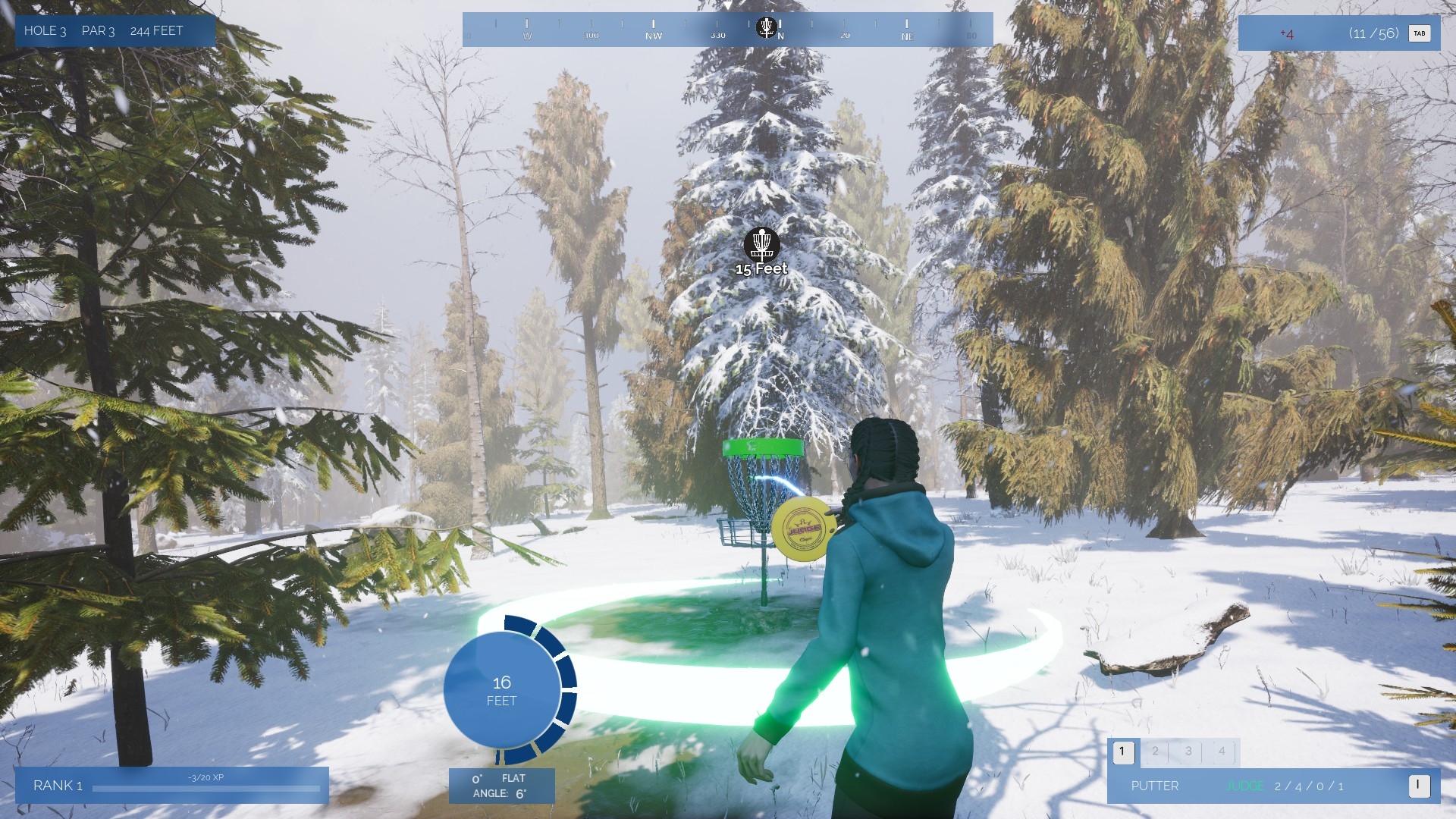
Golf brings a lot of pleasure to a lot of people, but demands prodigious quantities of land and water, and has a sizeable carbon footprint. To birdie and bogey your way around the countryside with a totally clear conscience, you probably need to switch to virtual golf or disc golf, or, for maximum smugness, do all your driving and putting in £4 Early Access FLEX Disc Golf.
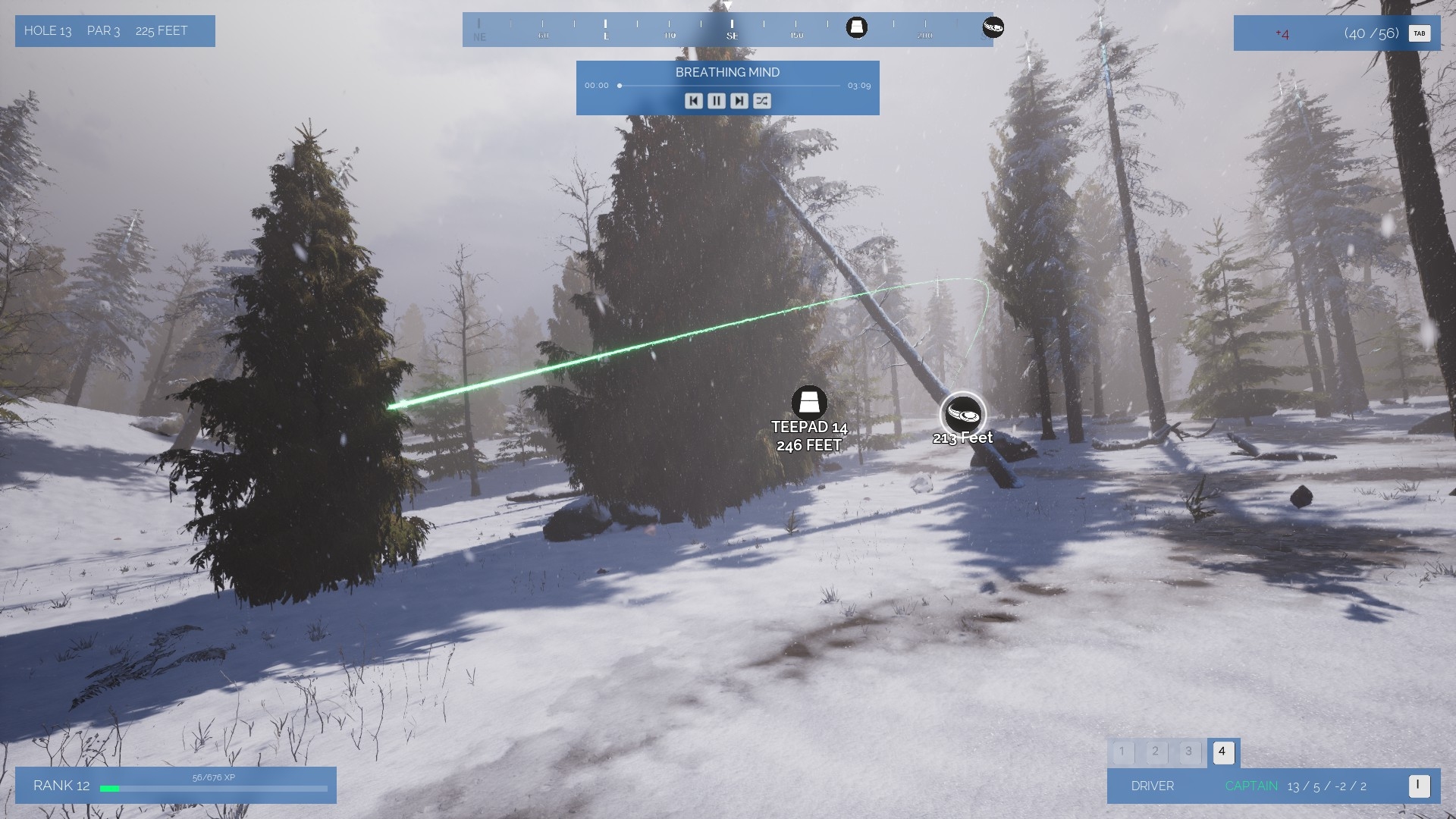
I found the the FDG demo to be a surprisingly adept entertainer. Arcing a plastic platter around, over, and under obstacles on the snow-mantled 18-hole course takes a subtle combination of manual dexterity and good judgement. Get things wrong and you can easily find yourself standing behind a fir or birch trunk, with a short sideways ‘shot’ the only practical possibility.
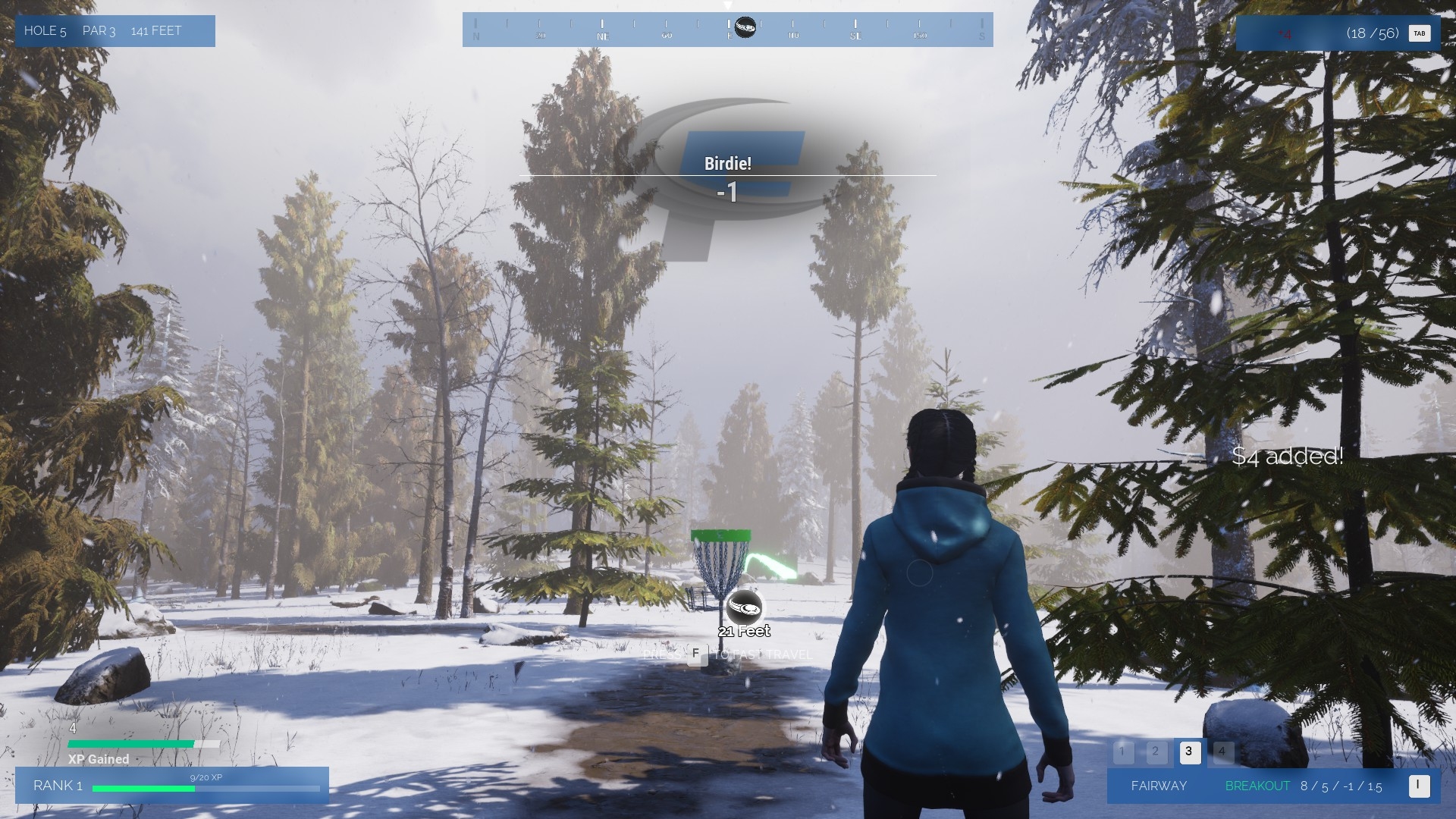
Yesterday I spent ninety minutes hurling and scampering, fist-pumping and cursing, and the time flew by like a hard-flung frisbee.
I is for Infiniwar
While the stylized units and relatively short engagement distances visible in this vid probably won’t impress dyed-in-the-wool wargamers, the procedural campaigns, randomly generated maps, and environmental destruction Joe Theis has planned for his World in Conflict-inspired RTT, might.
O is for On the fence
Earlier this week I tried Early Access Voor De Kroon for the first time. Total War: Medieval II meets Chivalry, this £24 offering lets players murder…
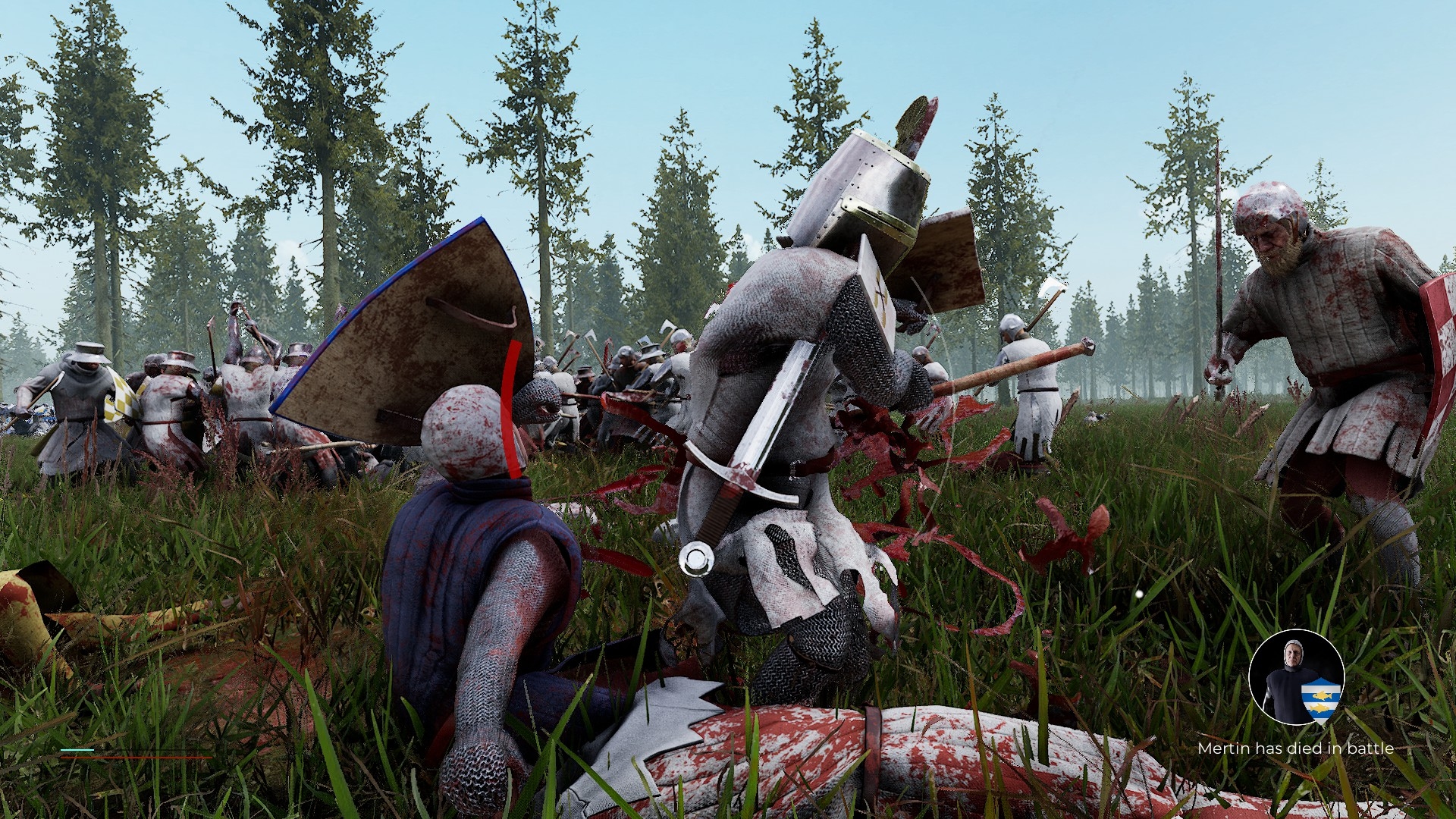
and marshal…
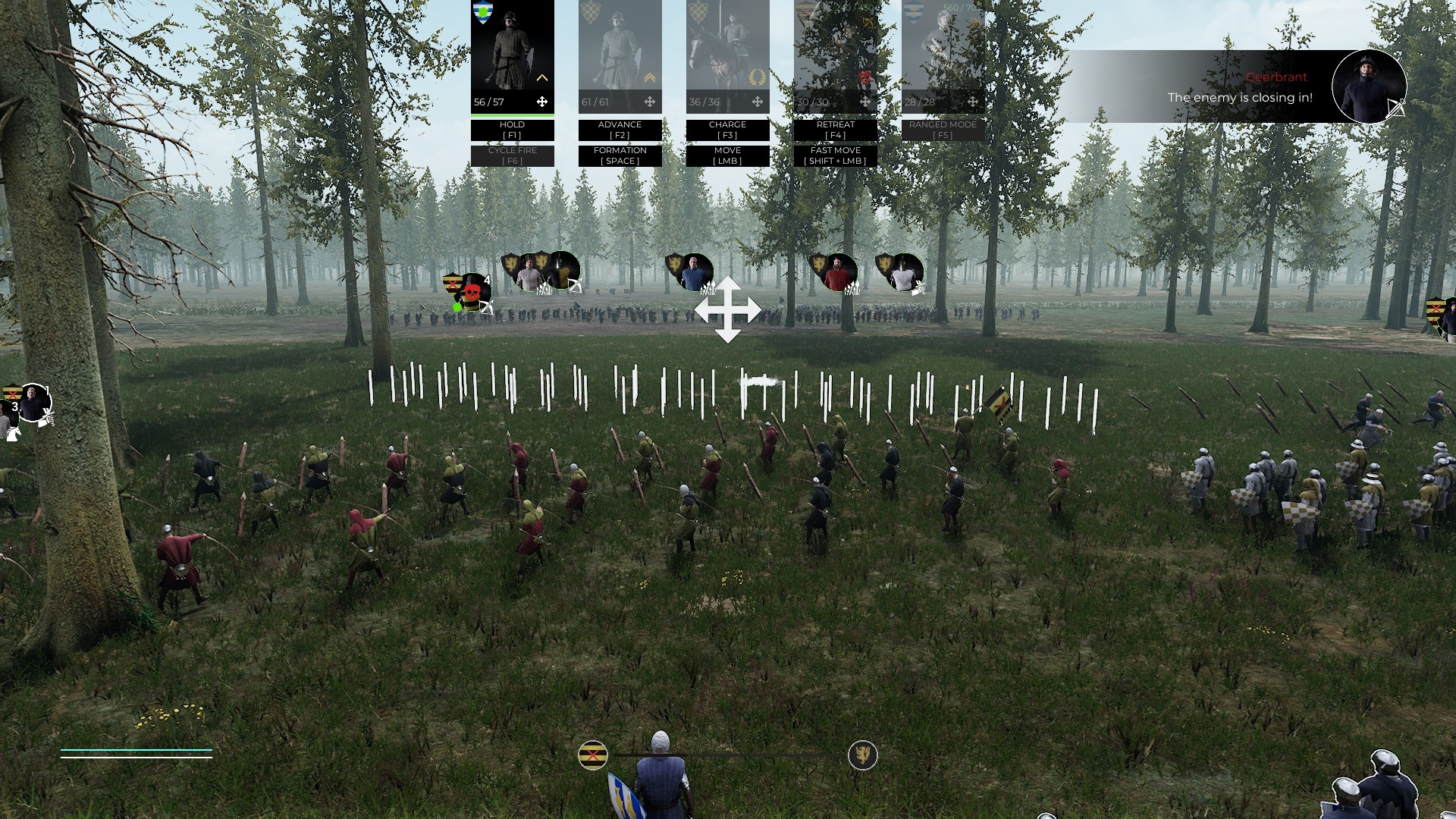
on the flat 13th Century battlefields of the Friso-Hollandic Wars.
Perhaps my expectations were too high (the game has a ‘Very Positive’ Steam rating, and the trailers are very persuasive) but I left after an hour of hectic bloodletting feeling somewhat deflated.
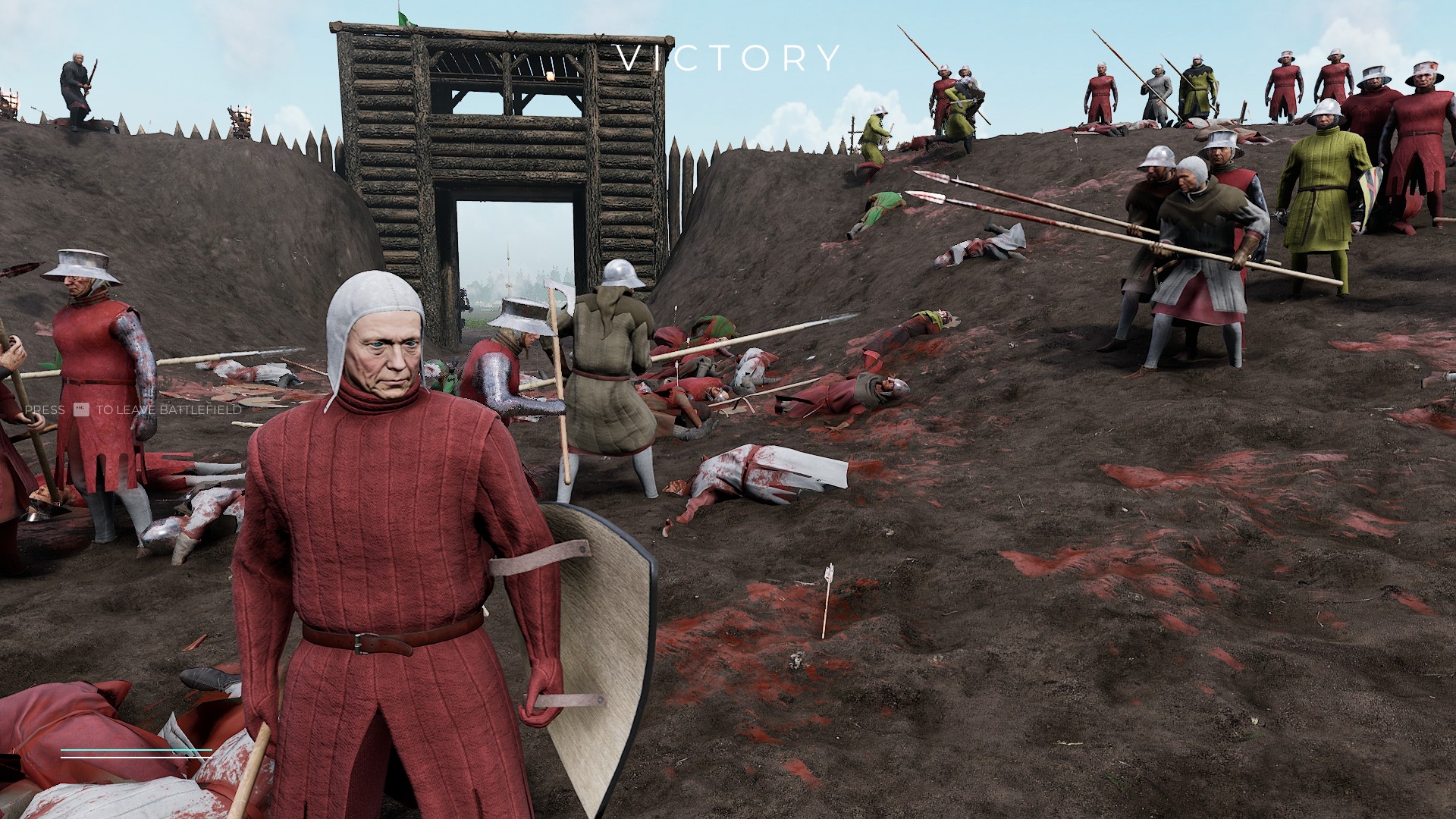
Although I was hoping for more physicality from the swordplay and more elegance from the command mechanics, VDK did just enough to remain on Ada’s hard drive. Maybe when I start campaigning and gain a little more proficiency with sword and shield, a bond will form.
U is for Uncomfortably topical
The studio behind upcoming military FPS Glory to the Heroes want to “showcase all the brutalism and hell of modern-day conflict by immersing players into the role of an enlisted soldier on the battlefield with absolutely new ways of waging war where intense artillery and trench warfare mixed with hi-tech like drones”. They wish to represent “the real conflict events in an accurate and historical way” and produce something “committed to serving educational, journalistic, and culture-sharing purposes”. A cynical part of me wonders if these admirable goals are compatible with genre conventions such as saves, restarts, and customisable difficulty. I’m also not sure I’ll feel comfortable gaming the war in Ukraine at close quarters, until Russian forces have been expelled, and the killing has stopped.

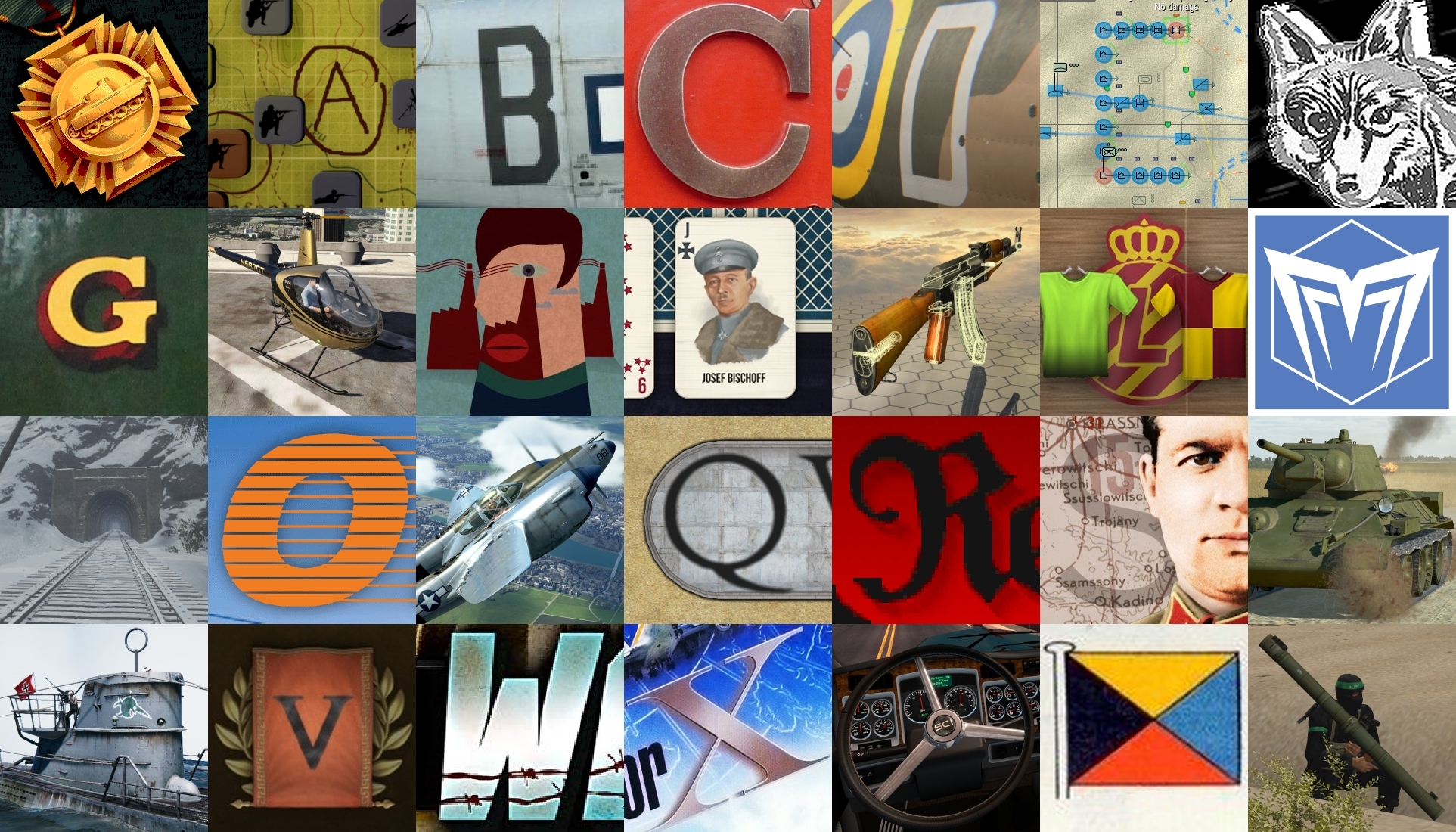
Bit of a disjunction between:
O – standing in a blood-soaked gully: “I want to dismember flatlanders with finesse and panache”
and
U – crouching in a trench: “I’m not up to shooting and dismembering (possibly press-ganged) Russians”
WILL cave someone’s pixellated head in with:
sword, mace, polearm, shield boss
WON’T cave someone’s pixellated head in with:
trenching tool, rifle butt
Mythical or historical battle vs ongoing conflict in which people are dying daily.
I can understand how they might evoke different emotional responses.
My current perspective doesn’t see a particular distinction.
I haven’t fired a calibre larger than .22. I’ve swung sledge-hammers and a two-handed splitting axe; and occasionally a scythe.
I can imagine accelerating a lethal implement to fatal speeds and directing it to target. The moment of impact, and its’ consequences, are inconceivable in each case:
an axe for Johnny Horned-Helmet
a blade for Johnny Saracen
a trench hammer for Johnny Hun
a 7.62mm round for Johnny Johnovitch
Since there are no graduations of ‘inconceivable’ – there’s no more or less inconceivable – each of the above acts of killing are equally incomprehensible in whatever period they are set to occur.
Is all killing really “inconceivable”? Forgive me if I’ve misunderstood your argument here, but it seems to rest on this being axiomatic, when I don’t think it is.
Surely one who has never done a major deed lacks understanding of that act (make whatever similes you want).
Do you have any arguments or examples that would disprove that position?
I think I’m happy to have my stance baldly stated as:
Since I’ve never killed anybody
killing a digital Ivan today
is the same as killing a digital Ivan fifty years ago
is the same as killing a digital Ivan five hundred years ago.
What rationale is there for anything contrary?
@Colonel_K
Ah, I see what you mean by “inconceivable” now. I suppose I can’t argue against your own viewpoint, as it seems to come down to (not illogical) personal opinion.
I would argue, however, two things:
1) Understanding is not the same as experience. I may not understand death, and I have never (to my knowledge) died. But people that I know have died, and so I believe I have experienced death from some angle. Perhaps not the strictly physical act, but killing is also so much more than the strictly physical act.
Consider a young Palestinian boy whose family has been killed by the IDF. He has never killed anyone in his life. He now plays two video games: one about fighting vikings in the 10th century, and one about fighting Israeli soldiers in the present day. Which one do you think will emotionally affect him more? Of course I can’t prove it, but I don’t think they would be equal.
2) Following on from this idea, that the major deed of killing is much more than the strictly physical act, we can see that there is also much direct and indirect involvement in the killing. There is Putin who orders his troops to kill, there are the foreign governments which manufacture the weapons, there are the leaders which undermine peace agreements for personal gain, there are protesters and journalists and scientists and even game developers whose software is used to help train troops. There is a chain of emotional involvement which runs through millions of people on this planet, whether right or wrong, whether it’s just a little guilty feeling when you sidestep protesters outside the Russian Embassy, or maybe something more substantial when you weld together bomb components.
Now, I am not saying you have to feel something. Guilt is a tool too easily hijacked for other purposes. But at the same time, it’s not inconceivable that someone might feel certain emotions about the act of killing, especially if that killing is represented in media set in the present day.
To be honest, a lot in the Glory to Heroes trailer looks fake. I mean there are a lot of details that correspond to fake renders of “games in development”. Disjointed systems, weird scope of interactions, incomprehensible gameplay loop, animations that I am sure I saw elsewhere… And I actually don’t know if I want to hope for it to be real. But not from an ethical standpoint, more because the trailer kind of demonstrates complete lack of game design and narrative vision. It is more or less a collection of postcards that we could see from multitudes of media that is available on the subject, and even the narration refuses to marry with the representation in the trailer, almost as if they tried to cast an as wide as possible net, to fish out all the different emotions people feel about this war.
@Tim Re: How one can feel about playing a game about this conflict.
You know, even after I escaped Russia, I had a strong feeling of frustrating impotence directed at how I cannot affect this war, its senseless slaughter and how I was exploited for years to make it possible.
Weirdly enough, when I was especially not okay, I’ve booted Steel Panthers MBT’s latest update, that made the OOBs somewhat up to date, and generated a little skirmish, where I could play as commander of abstracted, dehumanized Ukrainians against my ex-compatriots.
I cringed as I initiated the game, the force compositions were way off, there was little to no personality in the game, and yet it felt somewhat like a catharsis. Not in a maniacal way, not because I was allowed to vent by slaughtering abstracted Russians. It was a little illusion of being in control, understanding what is going on and having a clear objective and solutions.
It really helped me get myself together and rearrange how I felt about this war and what I can actively do about it. There is no direct logical connection there, but things like this can help one, especially affected by the conflict, to help to work through the emotions and make sense of what is going on.
But there is something to be said about how much responsibility rests on the shoulders of the creators of such games. One wrong move and you are nurturing hatred, salting the wounds or offering answers where you would be better off just asking a clear question.
So a narrative driven game is risking a lot, not only its success. There is a sweet spot between humanizing characters in this war and selling their point of view. And I have to agree, even if done right, this kind of game (and we kind of don’t know what kind this is, but there are signs) will be uncomfortable and it will stumble
Gobser, I don’t have anything to add to these thoughts, but I just want to say that I genuinely appreciated you sharing this experience and perspective.
Alternative U: Until The Last Plane 2 Demo & Release Date,
Don’t think this has been mentioned on the site, so maybe worth mentioning here. I’m not sure when it happened but Until The last Plane 2 now has a demo available on Steam with an announced release date for the full game of October 21st.
You mean Until the Last Plane: 1942? Which is an arcade that is, as can be quite correctly deduced from the name, wants to be a successor to the venerable game called 1942?
Judging from the Steam page there are no strategy elements or simulation aspects, just a bullet-hell side-scroller that shares a brand name.
It seems that the franchise decided to go the opposite direction
You’re right on all counts; I got the name wrong, and I took it for granted that what they were showing was just the updates to their mission mini-game; I didn’t look closely enough to realize that they had entirely ditched the airbase side of things. That’s a shame.
Thanks for correcting/expanding on my poorly researched post!
Tim, thank you very much for making me aware of Voor De Kroon. Somehow, it went under my radar until now. The dev has you to thank for my purchase. So, let me just say, instead of tea and Jaffa cakes, I shall be playing this one with coffee and Stroopwafels. Bedankt en een fijn weekend, mijn koning!
Is it any good?
I went between thinking that the graphics in the original MTW2 looked better to nearly hitting purchase when I looked at the Steam page…
+1 for a newfound interest in Voor De Kroon. I loved the original Chivalry, but found it too hectic and wanted a realistic setting. I loved Mount & Blade Warband, but want something that’s easier to drop in and play.
There’s a passion behind the Voor De Kroon project that I like to see, and I hope it finds it’s audience.
Lots of good commentary on Glory to the Heroes already on here. The only thing I’d add is that games like this will fall flat for me until they replace the binary “alive-dead” hit point system with a more involved simulation of battlefield injuries & medicine. I don’t think you can claim a realistic depiction if you’re sanitizing the results.